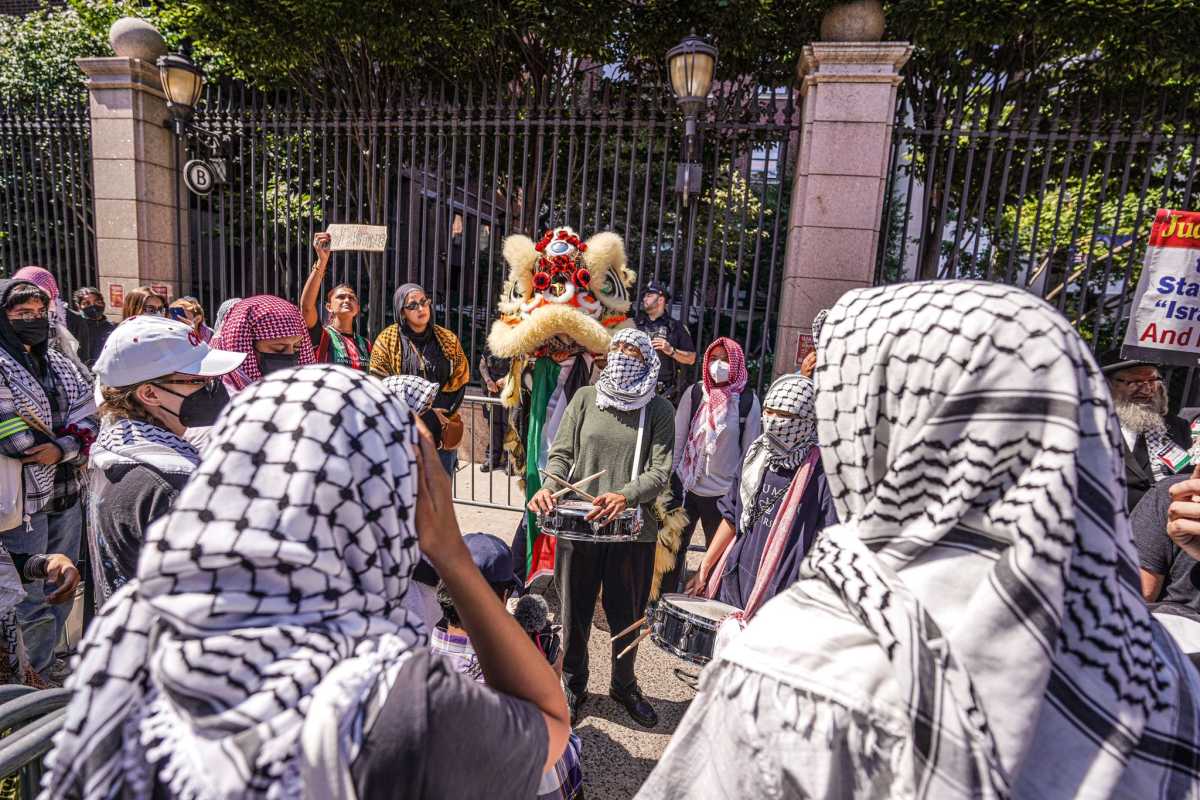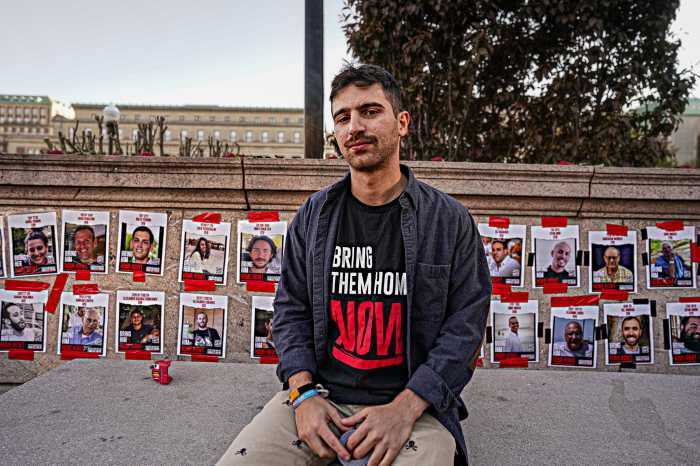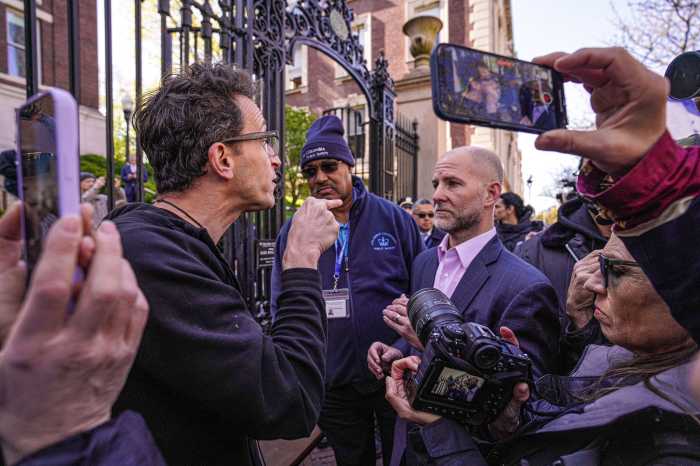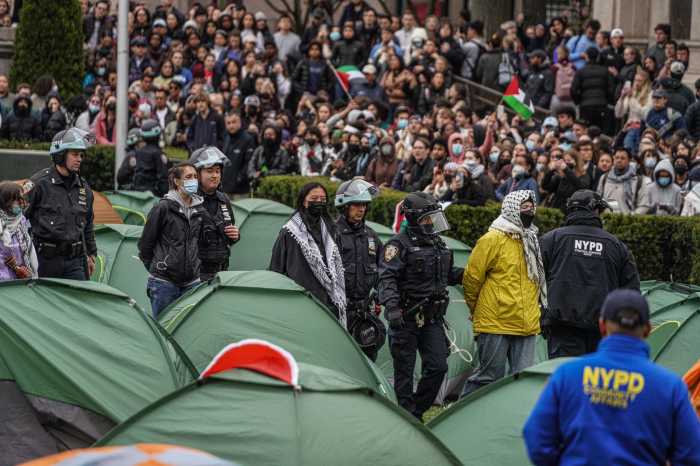Columbia University and Barnard College — whose campuses were rocked by pro-Palestine protests in the spring — reopened Tuesday for the first day of fall classes with some demonstrators again sounding off on the Israel-Gaza war.
A slew of Palestine protesters marched back and forth outside of Barnard College on 3009 Broadway on Sept. 3 in continued demand to end the war in the Middle East. At the same time, across the street inside Columbia University, activists vandalized the Alma Mater statue, dousing it with a bucket of red paint. Images posted on social media show the bronze sculpture dripping in crimson.
Meanwhile, the vast majority of Columbia and Barnard students showed up at their Morningside Heights campuses Tuesday ready to learn — even if protesters were ready to do something else.

Back in April, the campuses were besieged with protests. Columbia had the most boisterous of them, with its great lawn occupied for weeks and with demonstrators, at one point, besieging Hamilton Hall. The NYPD was eventually called in, leading to hundreds of arrests. The university’s president resigned after the tumult, and Columbia enacted a strategy designed to not only avoid a repeat of the spring protests but also combat antisemitism.
The aftereffects of spring’s protest could still be felt on the first day back to school.
Security guards were placed at every entrance to both Columbia and Barnard. All students were required to either show or scan their identification card.
Numerous NYPD officers were also posted in the area, creating a maze of steel barriers pedestrians had to traverse.

Fed up with the fuss
According to students, both the protesters and ramped-up security measures caused disruptions.
Sophomore Theodore Mielke says that while he sympathized with the pro-Palestine movement on campus, he did say the activity caused issues for him as he tried to get to class.
“It definitely impacted school. I do feel like it kind of halted classes,” Mielke said, remembering how classes were also switched to remote learning earlier in the year. “When most of my classes moved to Zoom, it’s not like it was a new thing. I was very accustomed to it due to COVID, it didn’t really affect me. It just kind of changed things.”

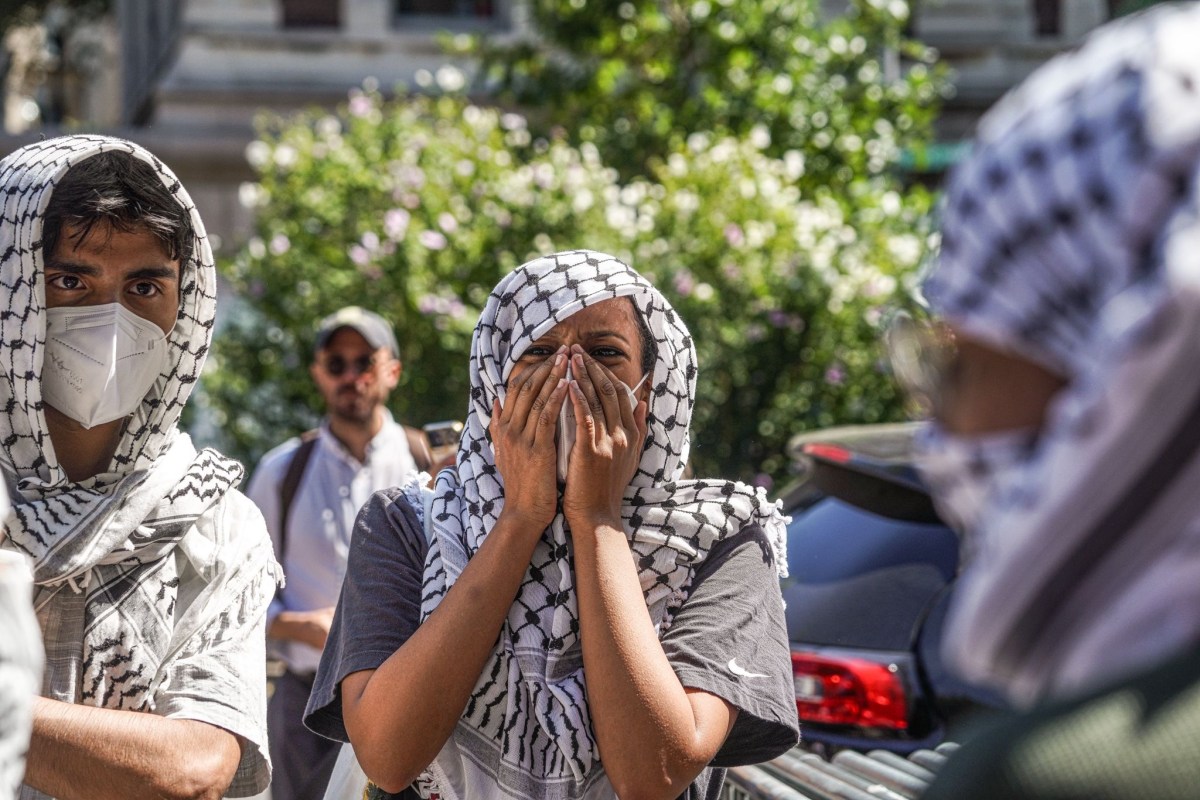
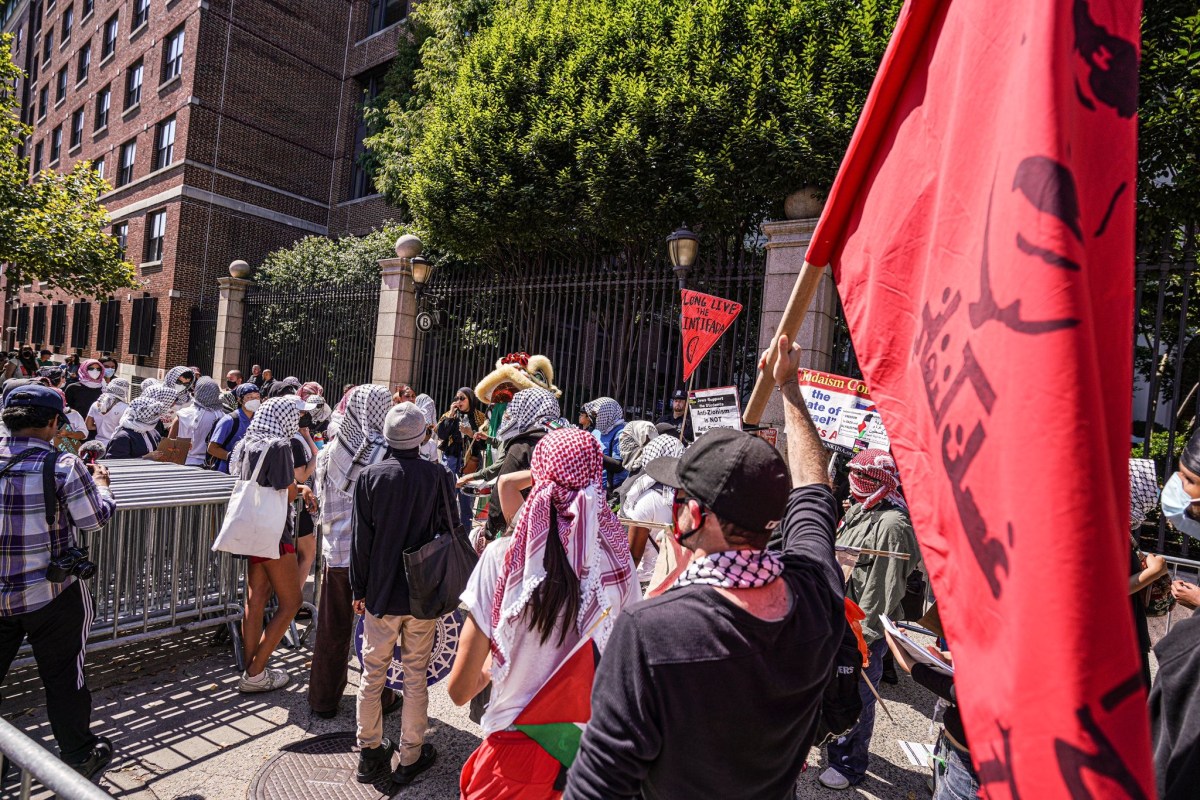
Nicole, who did not want to share her full name, says she hails from Israel and supports the end to the war, citing the catastrophic loss of life in Palestine as the main factor. Despite her sympathies, she says that she has been treated poorly by fellow students.
“In Israel, I’m pro-Palestine; a lot of people in Tel Aviv are,” Nicole said. “Here, you can’t even speak Hebrew, like you’re antagonized. It’s not a good environment.”
Speaking of the protesters themselves, Nicole said she feels like they are doing more harm to the movement than good — believing that a number of them have become too extreme.
“Everybody thinks in extremes. Like the extreme side of Israel, they are becoming the extreme side of that,” Nicole explained. “I can’t support that. They are saying intifada and I had a cousin who died in a suicide bombing. We all have our own personal experiences.”
At least two people were arrested during the protest outside of Barnard, according to demonstrators; the reason for the arrests were not immediately known.
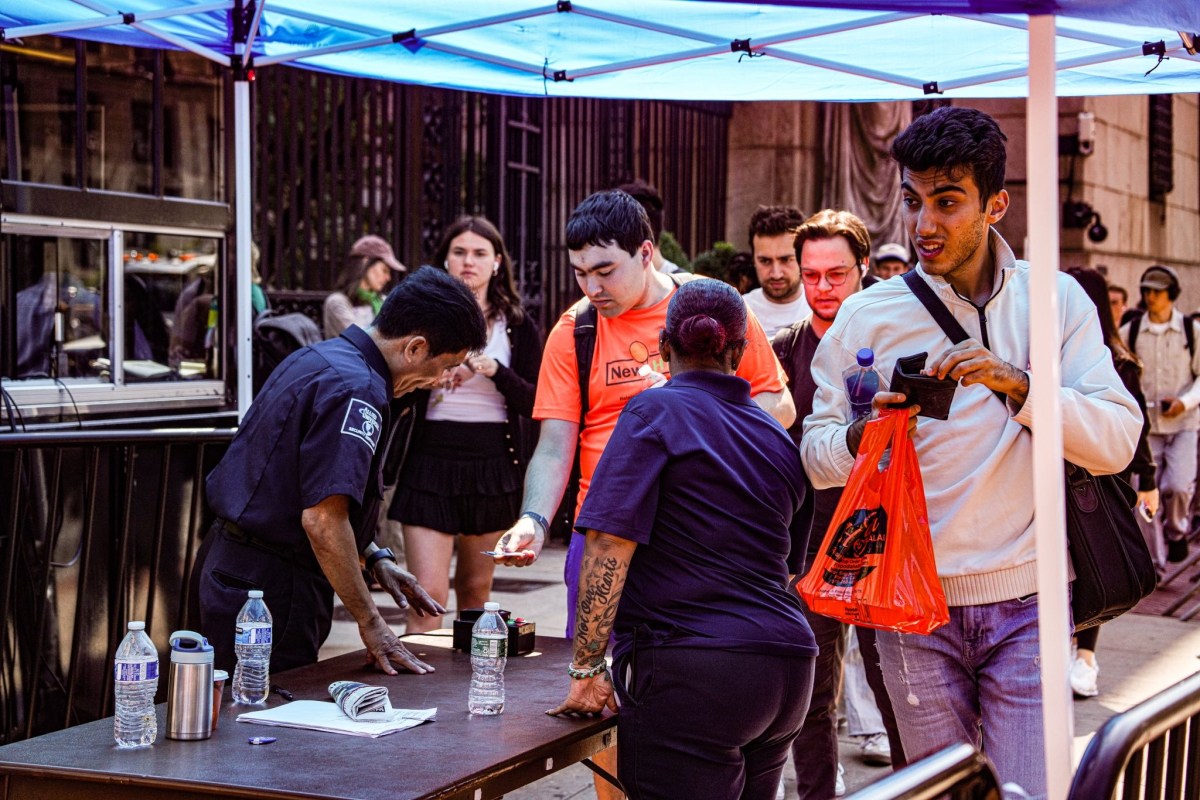
Read more: NYC Schools Expand Options in Updated Application Process



